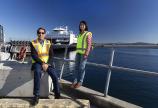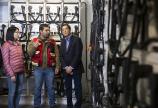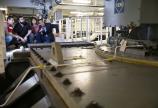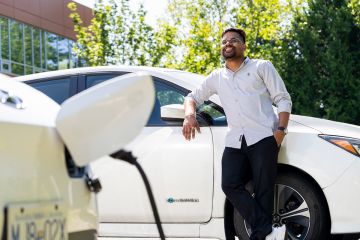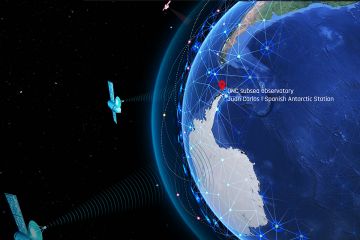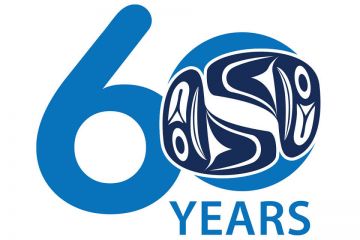Creating a sustainable future through clean energy
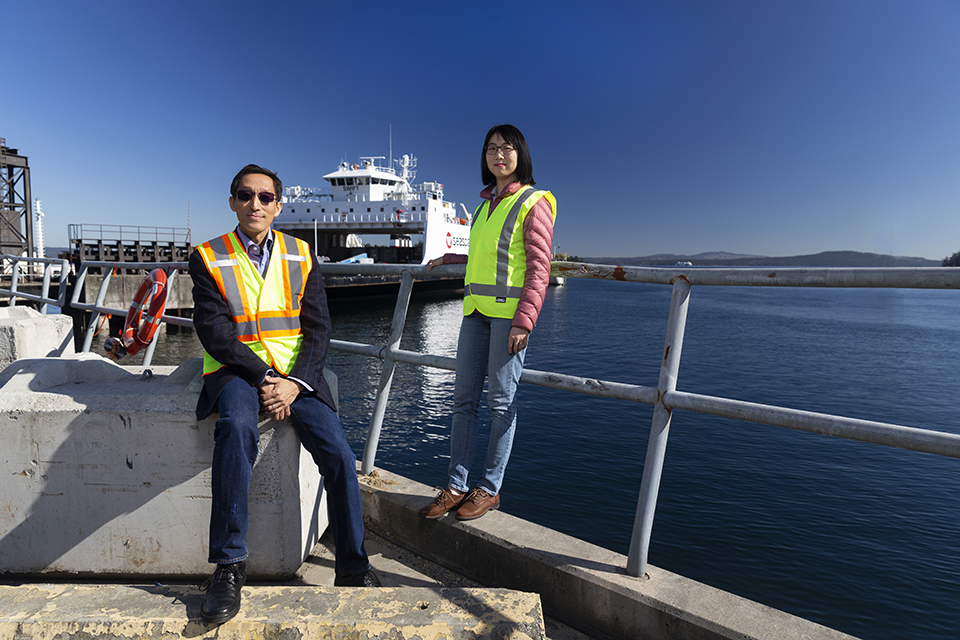
Donations fund research providing greener solutions for marine vessels
The next time you’re on a ferry, pay attention to its movement as it turns—take note of the wind, and the current. These are all factors being studied by mechanical engineer Zuomin Dong and UVic’s Clean Transportation Research Team as they work to cut down on the environmental impacts of marine vessels in our oceans.
“We are trying to introduce the tools for finding a solution that cuts down emissions, and the negative impact shipping is having on our marine life. And at the same time, we are also trying to help companies to reduce their operational costs by improving fuel efficiency,” Zuomin says.
It’s not just greenhouse gas emissions from the natural gas engine that the team aims to reduce. The underwater noise created by ships affect animals like orcas, impacting their ability to navigate and hunt. Concern about the endangered southern resident orcas deepened after two widely reported whale deaths in 2018.
Dong’s research, which will reduce the environmental impact and costs of marine traffic, is funded in part by a million-dollar donation by the Dennis and Phyllis Washington Foundation, in conjunction with Seaspan. That funding supports the team’s development of the enabling technology and integrated modelling tools to transition marine vessels to optimized hybrid natural-gas / electric and pure electric propulsion systems.
Learning alongside industry partners gives UVic students an edge
The research hits close to home for PhD students Lily Chen, Anthony Truelove and Michael Grant—three of several dozen students who’ve worked on UVic’s Clean Transportation Team. “I grew up in a city that suffers from extreme air pollution,” says Chen, “so it has always been my dream to find a way to make clean, renewable energy a standard.”
Unlike cars, the hybrid propulsion systems that will power tomorrow’s marine vessels must be highly individualized due to their different routes, loads and ocean conditions. Using newly developed integrated modelling tools for ferries, tugboats and commercial ships, Dong and his research team can create an optimized propulsion system and its controls based on the specific needs of each vessel.
While it is a team effort to introduce and improve the enabling technology and new integrated modeling and optimization tools for clean ships, Chen was instrumental in developing a model-based system for a tugboat design. “I was able to talk to professional engineers and get valuable knowledge from the industry,” Chen recalls. “That experience is something that is invaluable as I move forward in my career as an engineer.” Truelove and Grant have produced new computer models for predicting load and operation patterns of a specific vessel to support the system simulation—and consequent optimization—of clean propulsion solution.
One of the challenges of marine vessels is the constant variation of the ocean. The currents, winds and ocean temperature create conditions similar to a vehicle continually going up and down hills. “Our next step,” explains Dong, “is to use the ocean environment data to create intelligent control—so the vessel can recognize ocean conditions in real time to optimize power control and energy use.”
Real impact around the world
Working closely with Seaspan through the Washington Foundation, UVic’s Clean Transportation Team is taking long-range concerns facing the industry and finding solutions that will produce more fuel efficient, cleaner and quieter marine vessels. “Instead of purely academic research, we are working on commercially viable technology,” says Dong.
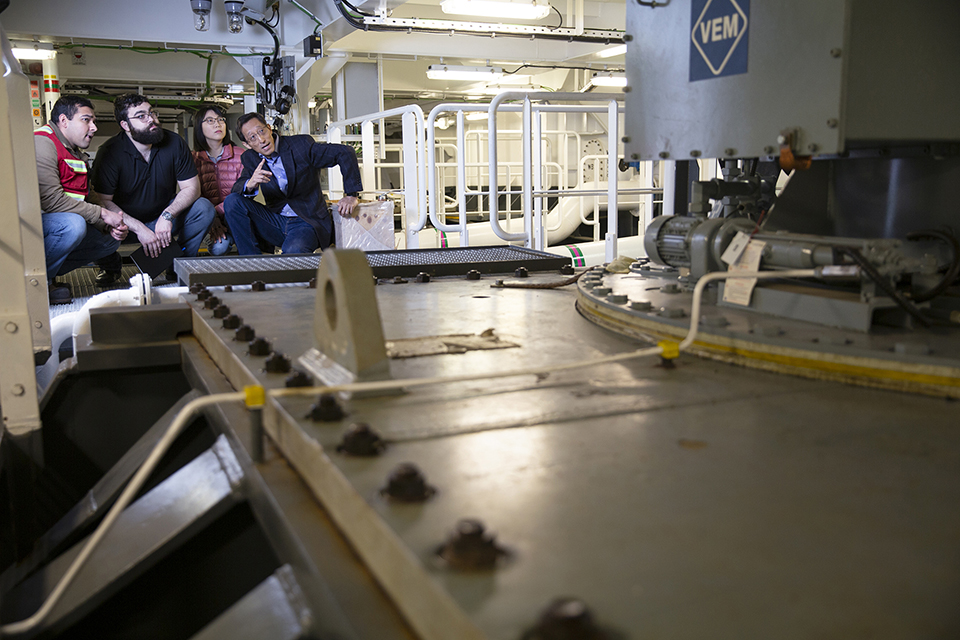
Seeing their work put into action is an inspiration for students like Chen. “I’m so grateful for the opportunity to see how our work as engineers can make an impact on the industry and as a whole.”
That sharing of knowledge is what Dong anticipates will spark more innovation around the globe. “The hope is that by finding ways to use our limited resources better and reduce our environmental impact, we will be creating a better world.”
Photos
In this story
Keywords: clean energy, oceans, pollution, research, philanthropy, sustainability, technology, transportation, climate solutions
People: Zuomin Dong

